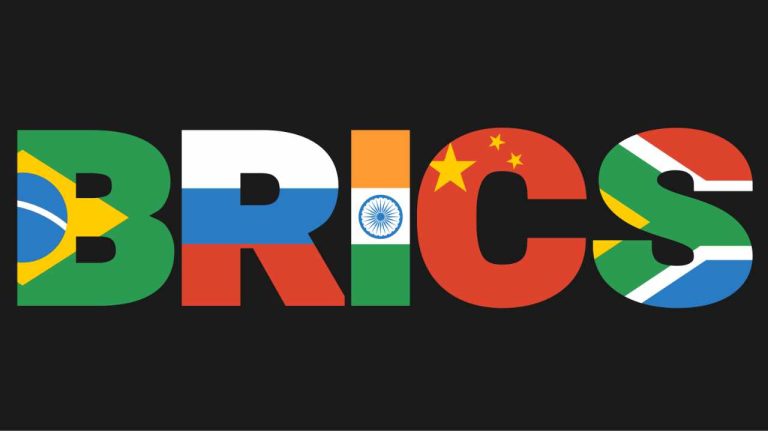
Lord Jim O’Neill, the British economist credited with coining the acronym BRIC, calls the creation of a common BRICS currency “ridiculous,” emphasizing that the BRICS nations have “never achieved anything since they first started meeting.” He added: “It’s a good job for the West that China and India never agree on anything, because if they did the dominance of the dollar would be a lot more vulnerable.”
Lord Jim O’Neill Slams Common BRICS Currency Idea
British economist Lord Jim O’Neill shared his view on the proposed single BRICS currency in an interview with the Financial Times this week. The BRICS leaders are set to meet at the economic bloc’s 15th summit on Aug. 22-24 in Johannesburg. South Africa is the host of the BRICS summit this year. However, there are mixed reports on whether the creation of a common BRICS currency will be discussed at the summit.
O’Neill, a former Goldman Sachs economist, coined the acronym BRIC over 20 years ago to describe the economic potential of Brazil, Russia, India, and China. South Africa joined the group a few years later, and the acronym was changed to BRICS. O’Neill is now a senior adviser at U.K. think tank Chatham House.
The economist asserted that the BRICS nations had “never achieved anything since they first started meeting” eight years after he created the phrase in a 2001 research note. He believes that a common currency for the BRICS economic bloc would be unfeasible, stating:
It’s just ridiculous … They’re going to create a BRICS central bank? How would you do that? It’s embarrassing, almost.
“Quite what they attempt to achieve beyond powerful symbolism, I don’t know,” he opined.
In June, Lord O’Neill similarly described the idea of a single currency for the BRICS nations as “ridiculous” and “amusing.” He stressed that “China and India never agree on anything,” pointing out that the two countries “can’t even really agree on basic things like a peaceful border.”
U.S. Dollar Could Lose Its Dominance, Lord O’Neill Warns
The British economist also commented on the dominance of the U.S. dollar, emphasizing that the USD’s dominant position in the global financial system is not beneficial for emerging countries. He described:
The dollar’s role is not ideal for the way the world has evolved. You’ve got all these economies who live on this cyclical never-ending twist of whatever the [U.S. Federal Reserve] decides to do in the interests of the U.S.
Some economists have predicted that other currencies, such as the Chinese yuan, the Japanese yen, or the euro, would eventually overtake the U.S. dollar. However, O’Neill cautioned: “None of these things will ever happen until those countries want to have their currencies used by people in other parts of the world.”
The former Goldman economist noted:
It’s a good job for the West that China and India never agree on anything, because if they did the dominance of the dollar would be a lot more vulnerable.
In June, Lord O’Neill also warned that the U.S. dollar will lose its dominant status as the world’s reserve currency. He expects the Chinese yuan and possibly the Indian rupee to become “much more important currencies for the world.” He stressed: “I do think if China and India could ever strongly agree on things as the two biggest countries in the emerging world … then that would probably hasten the end of the dollar’s dominance.”
Do you agree with economist Lord Jim O’Neill about the proposed common BRICS currency being “ridiculous”? Let us know in the comments section below.